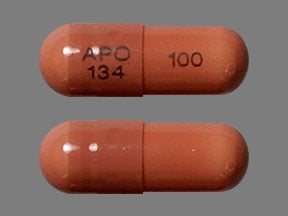
Sandimmune Coupons & Savings Card – Discount Prices from $189.40
Brand for: Cyclosporine
My prescription
Edit
100MG, Cyclosporine (60 Capsules)
Select pharmacy

CVS
$189.40
COUPON PRICE
Walgreens
$238.38
COUPON PRICE
Albertsons
$486.26
COUPON PRICE
Walmart
$651.47
COUPON PRICESandimmune savings card
Show this card to your pharmacist
CVS
$189.40
BIN
ID
PCN
GRP
019876
LHAD94D056
CHIPPO
LHX
Powered by
Related CNI immunosuppressants prescriptions
More prescriptions for organ transplant
Related CNI immunosuppressants prescriptions
More prescriptions for organ transplant
Price history for Sandimmune (brand) & Cyclosporine (generic)
60 Capsules, 100MG
Average retail price for Sandimmune
Average retail price for Cyclosporine
Average SaveHealth price for Cyclosporine
Our price history data is based on aggregated prescription data collected from participating pharmacies in America. Our prescription data updates daily to reflect the latest price changes. If you notice a missing data point, it means there wasn't sufficient data available to generate a monetary value for that date.
Over the last 12 months, the average discount price of Sandimmune is $348.30 using the SaveHealth savings card. That's an average savings of 64.68% on Sandimmune with our discount card.
*Retail prices are based on pharmacy claims data, and may not be accurate when we don't have enough claims.
Sandimmune (Cyclosporine) dosage forms
Dosage Quantity Price from Per unit 25MG 1 Capsule $11.90 $11.90 25MG 30 Capsules $42.64 $1.42 25MG 60 Capsules $66.97 $1.12 100MG 60 Capsules $189.40 $3.16 100MG 1 Capsule $17.79 $17.79 100MG 30 Capsules $103.85 $3.46
| Dosage | Quantity | Price from | Per unit |
|---|---|---|---|
| 25MG | 1 Capsule | $11.90 | $11.90 |
| 25MG | 30 Capsules | $42.64 | $1.42 |
| 25MG | 60 Capsules | $66.97 | $1.12 |
| 100MG | 60 Capsules | $189.40 | $3.16 |
| 100MG | 1 Capsule | $17.79 | $17.79 |
| 100MG | 30 Capsules | $103.85 | $3.46 |
What is Sandimmune used for?
Sandimmune is used to prevent organ rejection in patients who have received a kidney, liver, or heart transplant. It works by suppressing the immune system to prevent it from attacking the transplanted organ.
Is Sandimmune being discontinued?
As of the latest available information, Sandimmune has not been officially discontinued. However, availability can vary by region and over time, so it is advisable to check with local pharmacies or healthcare providers for the most current information regarding its availability.
What foods should you avoid when taking cyclosporine?
When taking cyclosporine, it is important to avoid grapefruit and grapefruit juice, as they can increase the levels of the medication in the blood, potentially leading to toxicity. Additionally, patients should be cautious with potassium-rich foods and supplements, as cyclosporine can increase potassium levels. It is also advisable to limit alcohol consumption and consult with a healthcare provider for personalized dietary recommendations.
What is the generic for Sandimmune?
The generic name for Sandimmune is cyclosporine.
